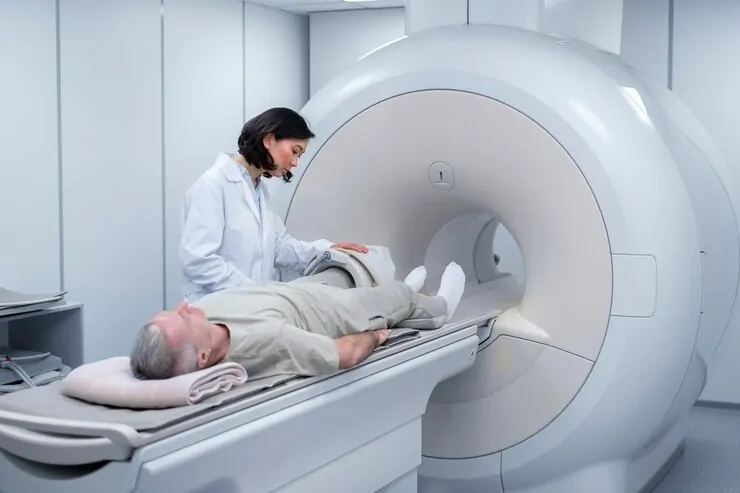Side Effects of Radiation Therapy for Cancer Treatment
In this blog we explain about Side Effects of Radiation Therapy for Cancer Treatment and common side Effects of Radiation for long term and short term.

Introduction About Radiation Therapy for Cancer Treatment
Radiation therapy is one of the most commonly used treatments for cancer, employing high-energy radiation to kill cancer cells and shrink tumors. While it can be highly effective, it also comes with a range of side effects that can vary significantly from patient to patient. As cancer survivors and caregivers navigate this challenging journey, understanding the potential side effects of radiation therapy is crucial for better management and support.
What is Radiation Therapy?
Radiation therapy, also known as radiotherapy, uses high doses of radiation to destroy cancer cells. Unlike chemotherapy, which affects the entire body, radiation therapy is a localized treatment targeting the tumor and surrounding tissues. The most common types of radiation therapy include external beam radiation and internal radiation (brachytherapy).
Common Side Effects for Short-Term
Fatigue
One of the most frequently reported side effects of radiation therapy is fatigue, including radiation therapy fatigue. This isn't just normal tiredness; it's a deep-seated exhaustion that doesn't go away with rest. Fatigue can affect daily activities and overall quality of life. It's important to pace oneself and allow ample time for rest and recovery. Additionally, Common Side Effects of Radiation encompass fatigue and other symptoms that may require management during treatment.
Skin Irritation
Radiation therapy can cause skin irritation in the treated area, ranging from mild redness to severe peeling and blistering. This condition, often referred to as radiation dermatitis, can be uncomfortable and requires proper skin care, including moisturizing and avoiding harsh soaps and clothing that may irritate the skin further.
Nausea and Vomiting
Some patients may experience nausea and vomiting, particularly when the abdomen or brain is targeted. Anti-nausea medications can help manage these symptoms, but it's essential to consult healthcare providers for the most effective solutions.
Hair Loss
While more commonly associated with chemotherapy, hair loss can also occur in the area being treated by radiation. For example, if the head is irradiated, patients may lose hair on the scalp. The hair usually grows back after treatment, but it may be different in texture and thickness.
Appetite Changes
Radiation therapy, especially when directed at the head, neck, or gastrointestinal tract, can cause changes in appetite and taste. Some patients may experience difficulty swallowing, dry mouth, or a metallic taste in their mouth. Nutritional counseling can be beneficial in managing these side effects.
Radiation Long-Term Side Effects
Cognitive Changes
Radiation therapy to the brain can lead to cognitive changes, including memory loss, difficulty concentrating, and other neurological issues. These changes can be subtle or significant and may develop months or even years after treatment.
Secondary Cancers
One of the more serious long-term risks of radiation therapy is the development of a secondary cancer. Although rare, the high-energy radiation used to treat the primary cancer can sometimes cause new cancers to form in the treated area years later.
Cardiovascular Issues
Radiation therapy to the chest can increase the risk of cardiovascular issues, including heart disease and damage to the blood vessels. Regular monitoring and early intervention can help manage these risks.
Lymphedema
Lymphedema, or swelling caused by the buildup of lymph fluid, can occur if radiation therapy damages the lymphatic system. This is particularly common after radiation treatment for breast cancer. Physical therapy and compression garments can help manage symptoms.
Infertility
Radiation therapy directed at the pelvic area can affect reproductive organs, potentially leading to infertility. Patients concerned about fertility should discuss options for preserving fertility before starting treatment.
Managing Side Effects
Communication with Healthcare Providers
Open communication with healthcare providers is essential for managing side effects effectively. Patients should report any new or worsening symptoms promptly to receive appropriate care and support.
Supportive Therapies
Supportive therapies, such as physical therapy, occupational therapy, and psychological counseling, can help manage the side effects of radiation therapy. These therapies can improve physical function, emotional well-being, and overall quality of life.
Nutrition and Hydration
Maintaining proper nutrition and hydration is crucial during radiation therapy. A balanced diet rich in fruits, vegetables, and lean proteins can help patients maintain their strength and cope with side effects. Staying hydrated can also aid in managing fatigue and skin irritation.
Exercise
Light to moderate exercise, as tolerated, can help reduce fatigue and improve overall well-being. Patients should consult their healthcare providers before starting any exercise program.
Emotional Support
The emotional toll of cancer treatment can be significant. Support groups, counseling, and connections with other cancer survivors can provide valuable emotional support. Caregivers also play a crucial role in offering encouragement and understanding.
Conclusion
Radiation therapy is a powerful tool in the fight against cancer, but it comes with a range of potential side effects that can impact patients’ lives both during and after treatment. By understanding these side effects and how to manage them, cancer survivors and caregivers can take proactive steps to improve their quality of life. Open communication with healthcare providers, supportive therapies, proper nutrition, and emotional support are all essential components of effective side effect management.
If you or a loved one is undergoing radiation therapy, remember that you're not alone. Reach out to your healthcare team for guidance and support, and connect with others who have faced similar challenges. Together, you can navigate this journey with resilience and hope.
What's Your Reaction?
















